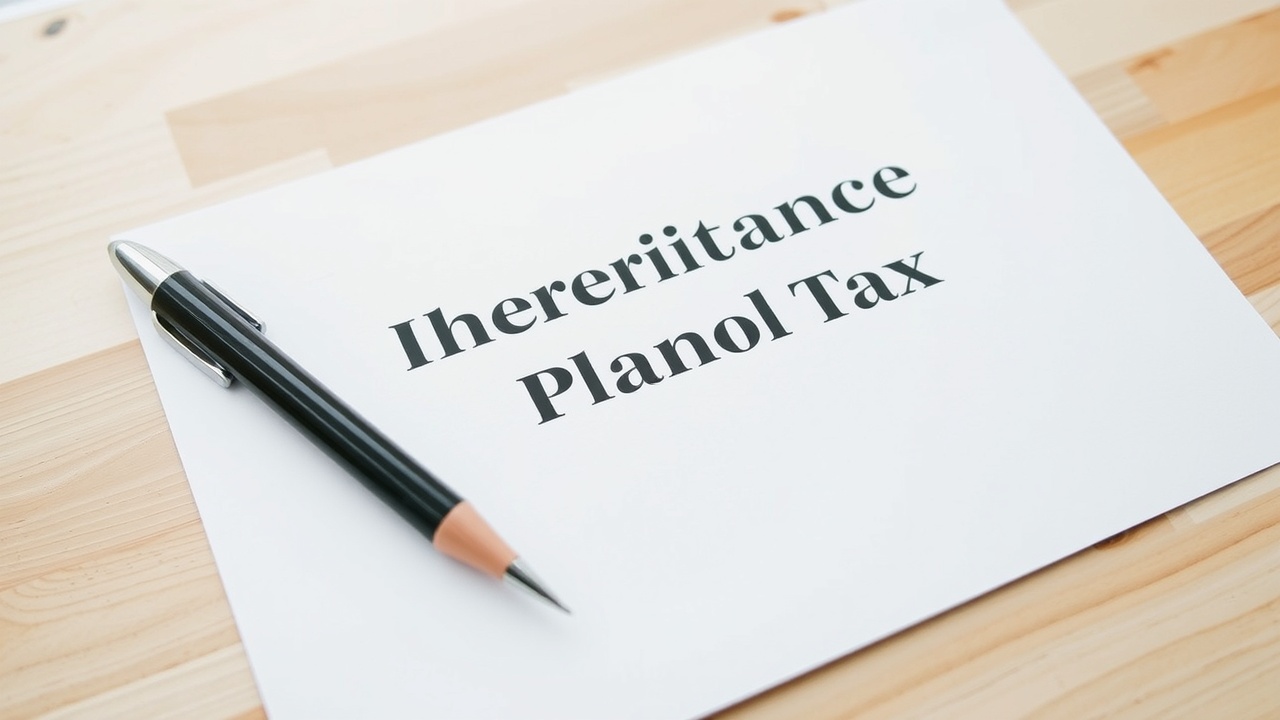
Families have been able to transfer wealth to surviving loved ones without paying inheritance taxes thanks to pensions, but that is about to change
We outline the steps you can take to safeguard the value of your estate.
Every year, tens of thousands of estates pay inheritance tax, or IHT. It is frequently regarded as Britain's "most-hated" tax, with a standard rate of 40%.
In the ten months leading up to February, HMRC reported record-breaking IHT receipts of 7.3 billion.
Currently, wealth held in a pension that is transferred to a beneficiary upon death is not subject to inheritance tax. Pensions give families a way to transfer a portion of their wealth tax-free while providing a haven from the snares of IHT.
In April 2027, however, the regulations will change as pensions lose their protective status.
To preserve your estate's value for your surviving family members, read our guide on the changes and learn how to avoid inheritance tax.
The taxation of pensions upon death.
The tax treatment of pensions varies according to the age of the pension holder at death.
If you have a defined contribution plan, the most popular kind of pension, and you are 75 years of age or older when you pass away, your beneficiary will be required to pay income tax on withdrawals at the regular tax rate, such as 20 percent.
The beneficiary can take out the money entirely tax-free if you are under 75 when you pass away.
Income tax is paid on the payments received by beneficiaries of defined benefit pension plans, also referred to as final salary schemes, regardless of your age at death.
Income tax is due on payments from a guaranteed annuity to your beneficiary or from a joint life annuity to a surviving spouse.
How pension inheritance taxes are currently administered.
In most cases, pension funds can be transferred without inheritance or income tax if the owner dies before turning 75.
Pension recipients who take withdrawals after the age of 75 must pay income tax, but inheritance tax is not due.
According to Robert Leatherland, owner of Bespoke Wealth and a financial advisor, "people saw the opportunity to increase their pension pot after the previous government eliminated the lifetime allowance for pensions, knowing that their investments would be shielded from inheritance tax."
Pensions are a popular way for families to transfer wealth to the following generation without paying inheritance taxes. But this will drastically change starting in April 2027.
The amount of your pension savings as well as your total assets, including real estate and savings your loved ones will inherit from a lifetime of hard work, could be impacted by this, Leatherland continued.
How the laws governing inheritance taxes on pensions are evolving.
Significant changes to inheritance tax and pensions have been sparked by a statement made by chancellor Rachel Reeves in the Autumn Budget of 2024.
Benefit recipients may be subject to a 40 percent tax charge in addition to any applicable income tax obligations as inherited pension funds will be regarded as part of the estate for inheritance tax purposes starting in April 2027.
On the portion of an estate valued at more than £325,000, known as the "nil rate band," inheritance tax is levied at a rate of 40%. Any unused nil rate band from a deceased spouse or partner may be inherited by married couples or civil partners, providing them with a 650,000 inheritance tax exemption. Leaving a primary residence to a child or grandchild can further enhance this.
Incorporating pensions into the inheritance tax calculation will increase the estate's total value and bring more families into the inheritance tax system.
High-earners are reconsidering their retirement plans in light of this prospect.
Wesleyan Financial Services specialist financial adviser Jonathan Halberda stated: "In an attempt to reduce possible inheritance exposure, many are opting to speed up pension withdrawals, move money into different arrangements, and get advice on gifting and trust planning.
When pension rules change, how much more inheritance tax will I have to pay?
AJ Bell, an investment platform, provides an example of the impact of the impending change.
At the age of 81, Colin, who is single, passes away with 200,000 invested in a pension and 500,000 in his remaining estate (not including his pension). His pension is exempt from inheritance tax under the current regulations, but he must pay 40% of the value of his £500,000 estate over the nil rate band (NRB). With 500,000 less 325,000 NRB, 175,000 is left over after 40 percent IHT, leaving Colin's estate with a 70,000 tax bill. The entire estate will be worth 700,000 for inheritance tax purposes as of April 6, 2027, meaning that 325,000 of his estate will be liable to IHT. Colin's loved ones now owe £150,000 in taxes. A percentage of the IHT due will need to be subtracted from the pension under the regulations that the chancellor has currently proposed. AJ Bell's head of public policy, Rachel Vahey, cautions families against making snap judgments.
She stated, "At this time, we are unsure of the final regulations." "I hope the revenue will pay attention and make some changes after receiving hundreds of responses to its suggestions on how this rule change will operate.
"Savers should exercise caution and refrain from acting hastily to make changes to their pension that they will be unable to reverse later on until we ascertain the final regulations.
How can my pension be exempt from inheritance tax?
You can work with a financial advisor to determine the best course of action to avoid paying IHT on your pension.
The following are some tactics.
To transfer wealth gradually without paying IHT, take a regular pension income and use the normal expenditure out of income rule to gift any excess funds. To better manage your wealth, look into family investment firms and trusts. Consider taking out the maximum amount of tax-free money from your pension to give away under the seven-year rule or to put in a trust. This amount is currently 25% on the majority of pension plans. "There's no one-size-fits-all solution," Wesleyan Financial Services' Mr. Halberda stated.
"Your unique situation will determine what works best for you. To evaluate your needs and determine the best course of action for you and your loved ones, it's critical to collaborate closely with a professional.
On pensions, do spouses have to pay inheritance tax?
No, when your spouse is the beneficiary of your pension assets, they do not currently have to pay inheritance taxes. If left to children or other beneficiaries after the death of the surviving spouse, the pension may be subject to IHT.
Whether your spouse pays IHT on your pension will depend on the value of the entire estate and any applicable IHT relief starting in April 2027, when pension assets are subject to inheritance tax.
What is your maximum pension contribution?
Your pension is yours to contribute as much as you like each year.
The total amount of contributions that are eligible for tax relief, including those made by you, your employer, and any other third party, is limited, though.
In 2024 - 2025, the standard annual allowance that is eligible for tax relief is £60,000. High earners will find this taper off.














Leave a comment on: Will putting all of my money into a pension help me avoid IHT?